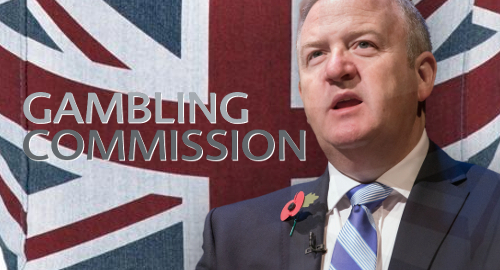The UK’s gambling regulator is warning operators to take their responsible gambling obligations seriously or GTFO.
 On Wednesday, UK Gambling Commission (UKGC) CEO Neil McArthur addressed attendees at the annual CMS law conference in London, defending the industry from recent media attacks while also urging operators to up their responsible gambling efforts.
On Wednesday, UK Gambling Commission (UKGC) CEO Neil McArthur addressed attendees at the annual CMS law conference in London, defending the industry from recent media attacks while also urging operators to up their responsible gambling efforts.
McArthur started off by noting that consumer confidence in the gambling sector “has been in decline for years” and if operators believed that individuals being harmed by gambling “is simply a fact of life and cannot be changed … you need to find another job if you are operating in Great Britain.”
But McArthur also pushed back on criticism of the gambling sector that he believes lacks “balance,” noting that UKGC licensees aren’t “predators.” McArthur said “boiling complex challenges down to soundbites doesn’t really help” and wondered if the UK was heading into a new age of “paternalism,” i.e. people at the top “restricting the freedom and responsibilities” of individuals in those individuals’ “supposed interest.”
McArthur acknowledged that the stricter oversight the UKGC has imposed in recent years has led to a flurry of seven-figure regulatory punishments against operators and “each press release we put out adds to the weight of negative stories.” But McArthur said “the cure lies in having good news to tell and not having bad news stories of compliance failures to publish.”
The “risk profile” of UK gamblers is changing and McArthur said the UKGC is “a risk-based regulator.” McArthur noted that UKGC statistics show gambling revenue is increasing despite decreased gambling participation by the general public, meaning “more money being taken from fewer customers – largely online” and most of that online revenue is coming from slots.
McArthur celebrated the UKGC’s recent announcement of partnerships with four major UK operators on working groups targeting specific areas of concern: advertising, VIP programs and product design. But McArthur said there will be no victory laps from this collaboration “until there is clear evidence that it is having a true impact.”
Going forward, McArthur said the UKGC would craft regulation “based on the best available evidence and judgment, whilst reserving the right to take a precautionary approach when the evidence is not necessarily conclusive.”
APPG LAYS OUT ITS 2020 FOCUS
The UKGC was recently called out by the All Party Parliamentary Group (APPG) on Gambling Related Harm as “unfit for purpose” due to the regulator’s alleged over-familiarity with the companies it oversees.
The APPG said this week that it welcomed the UKGC’s recent ban on gambling with credit cards and would now work to realize the other recommendations in the interim report the APPG released last November, including a £2 maximum stake on online slots, stricter limits on gambling advertising and mandatory funding for responsible gambling programs.
The APPG will also undertake evidence sessions to gather recommendations for the UK government’s planned review of the 2005 Gambling Act. The APPG’s areas of concern for these sessions include raising the age at which one can purchase lottery scratch cards, the ‘normalization’ of gambling and the ‘gamblification’ of sport. The APPG’s final report will be published “in the coming months.”
